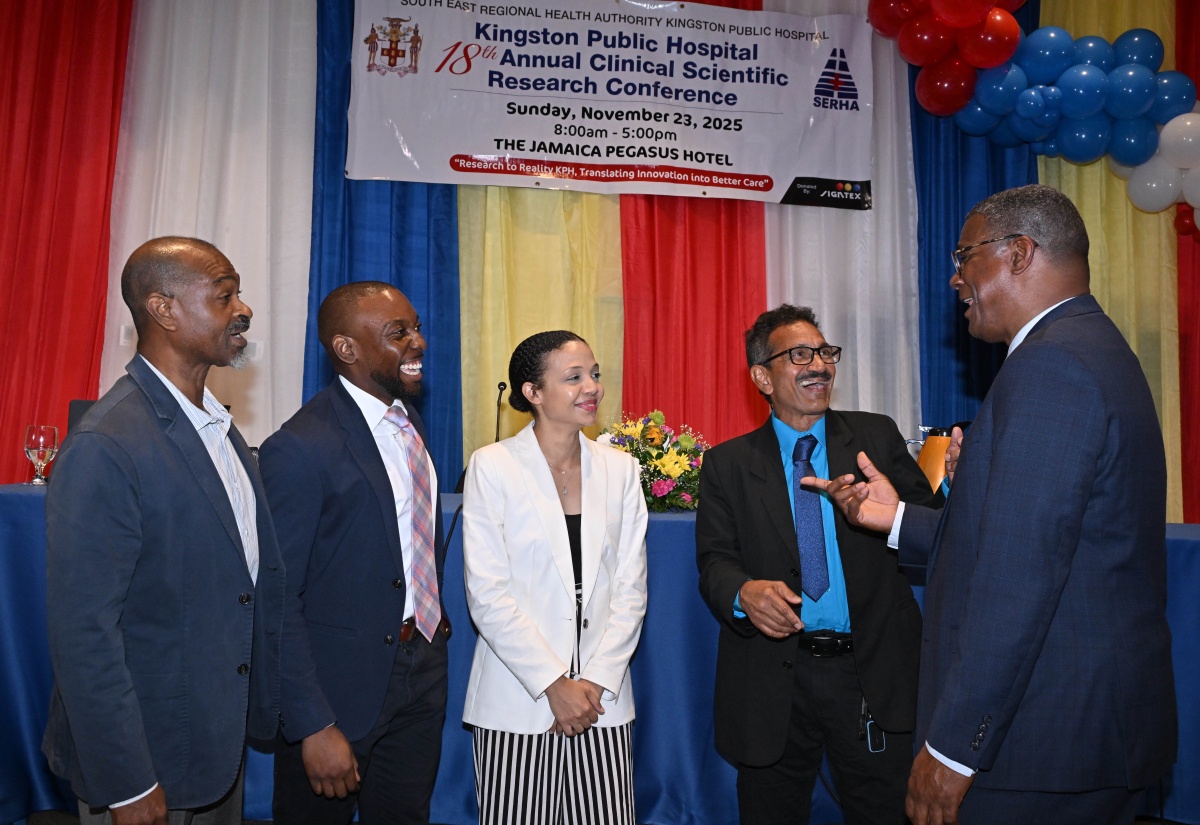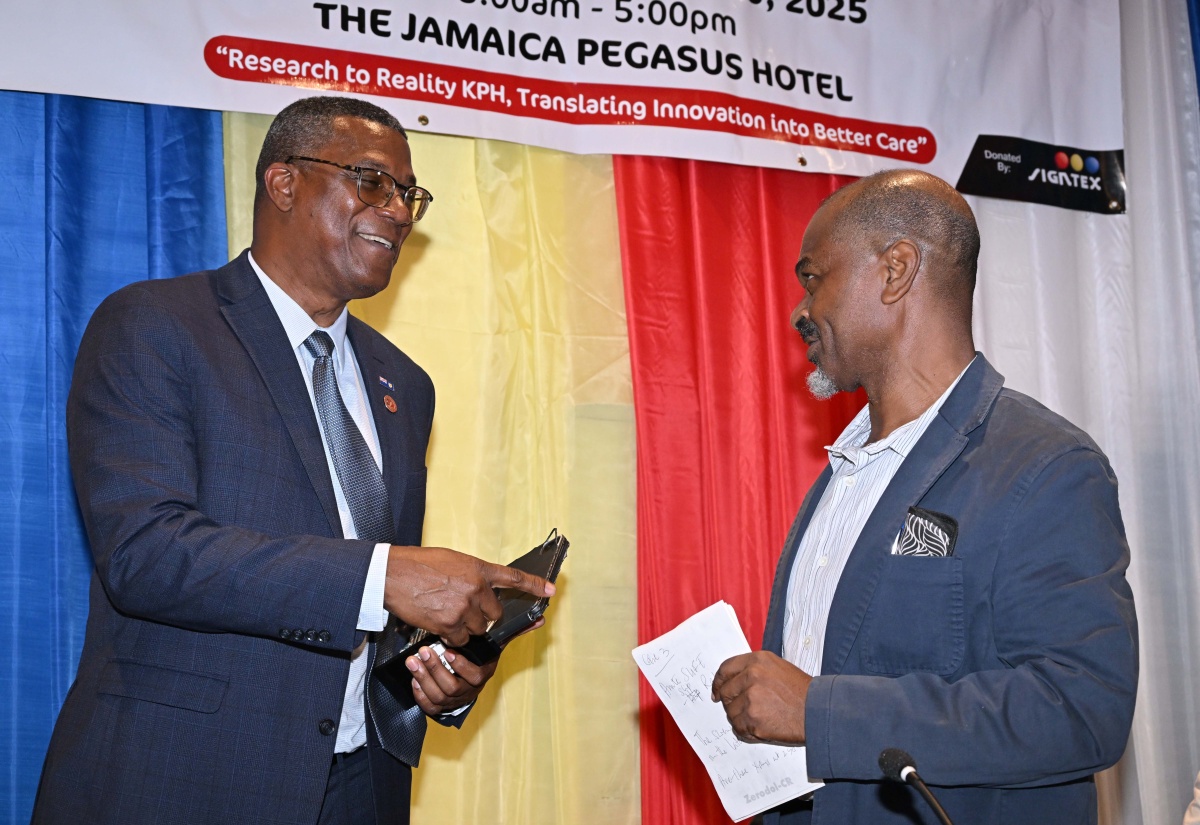TMRI Hailed as One of the Most Effective Research Facilities in Region
By: , November 25, 2025The Full Story
The Tropical Medicine Research Institute (TMRI), based at the University of the West Indies (UWI), Mona Campus, has been hailed as one of the most “effective research” facilities in the Caribbean.
Former Premier of the Turks and Caicos Islands (TCI), Dr. Rufus Ewing, said it also stands as an “example of research translated into clinical impact”.
“Its introduction of penicillin prophylaxis in young children, dramatically reduced mortality from pneumococcal sepsis. It was revolutionary and shifted countries around the world who soon adopted these protocols,” Dr. Ewing said.
He was delivering the guest presentation at the 18th Kingston Public Hospital (KPH) Annual Clinical and Scientific Conference, at The Jamaica Pegasus hotel in New Kingston, on November 23.

Dr. Ewing, who is also Chairman of the Medinco Group and Omnicare Medical Center, and Founder and Executive Chairman of the Hamilton Education Foundation/Hamilton University School of Medicine, said Jamaica has been a leader in medical research.
“Jamaica again led the region producing 74 per cent of all publications and led strongly in the area of experimental medicine, primarily due to the specialised units, such as the tropical metabolism research unit, while Trinidad and Tobago, and Barbados also led proportionately in public health publications – Trinidad specifically, because of the influence of the Caribbean
Epidemiology Centre. But all showed growth in research output over time, due to extension of the UWI, Faculty of Medicine, and related entities,” he told the audience.
Highlighting the work of the Sickle Cell Unit, based at the University Hospital of the West Indies (UHWI), and its decades of “groundbreaking work”. Dr. Ewing said the Unit remains one of
Jamaica’s greatest contributions to global medicine, as under the leadership of Professor Graham Serjeant it “dramatically reduced the risk of pneumococcal sepsis”.
“Today, the Unit empowers families with very simple but innovative tools like the flame stick, enabling rapid detection of static secretion, the use of transcranial Doppler ultrasound to help children to identify when you are at high risk for strokes, and guiding the appropriate use of hydroxyurea… not only guiding the use but having hydroxyurea as one of the protocols for treatment in persons with sickle cell disease,” he added.
Meanwhile, Dr. Ewing urged participants to seek external funding for research and innovation, while noting that Jamaica hosted the first regional information system for health meeting in 2016 in the Caribbean, with crucial leaders in the health sector.
“I am sure that initiative was instrumental in Jamaica’s progression in developing their electronic health record system that they have implemented now,” Dr. Ewing said.






